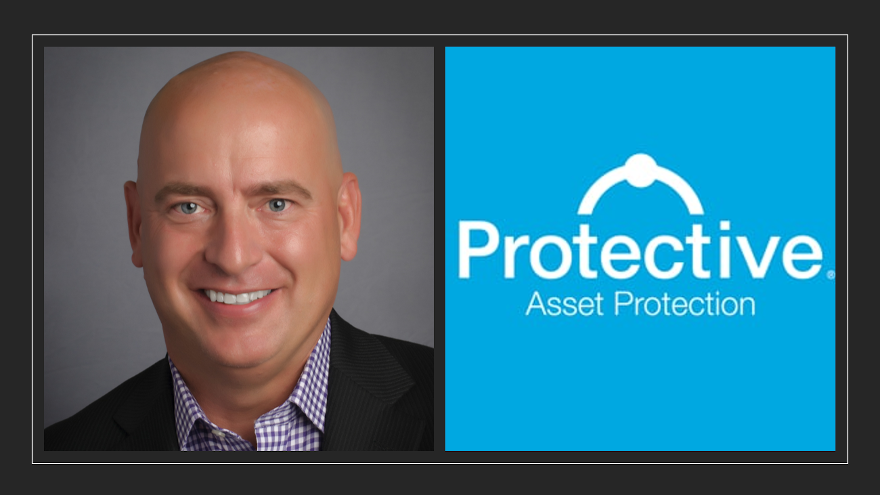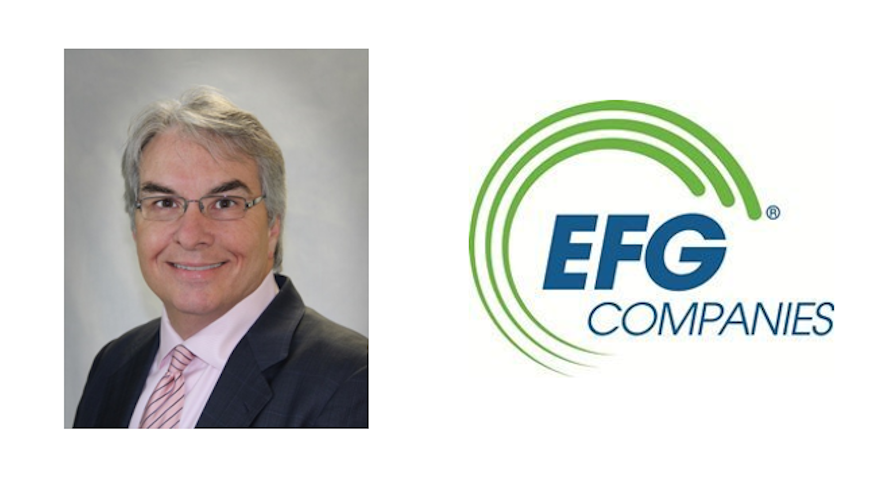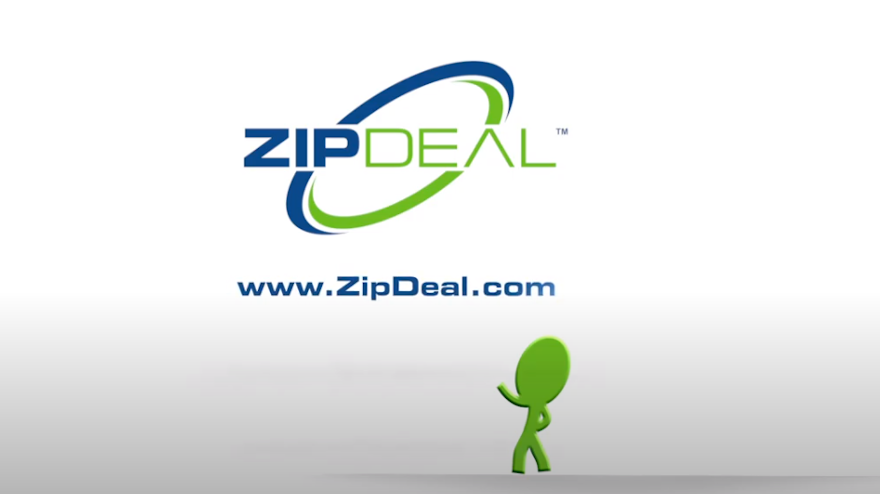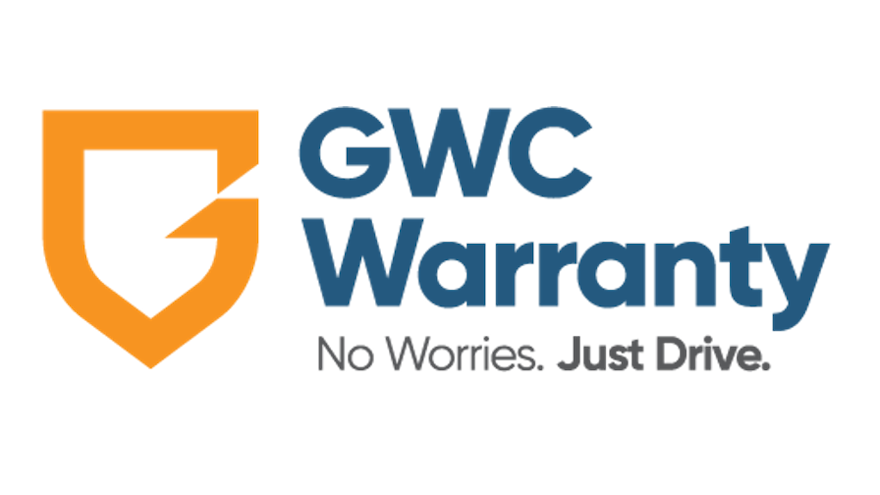Protective Asset Protection made another move this week aimed at helping dealerships during COVID-19.
After rolling out online training this spring, the provider of F&I programs, services and dealer owned warranty company programs announced an update to its retrospective (retro) programs that are designed to assist local dealerships meet the needs of their communities and employees.
Protective is reducing the production requirements for its retro programs. Beginning with the second quarter interest payment, the production requirements in all retro programs will be reduced by 25%.
In addition, the company said the year-end production requirement will also be reduced. This reduction will be applied across the remainder of the year and all levels, impacting each level of potential payout.
All other retro agreement requirements and conditions remain unchanged, and this change does not impact any other dealer participation programs, according to a company news release.
“Dealers are working harder than ever to serve their communities and remain open for new- and used-vehicle sales as well as the service and repair of these vehicles,” said Rick Kurtz, senior vice president of distribution at Protective Asset Protection.
“In addition to equipping dealers with the best F&I programs possible, we want to do everything we can to help dealers and their employees during this unprecedented time of operating a business,” Kurtz continued.
Under the structure of a retro program, the company explained payments to dealerships are retrospective commissions paid by Protective directly to a dealership.
Underwriting profits are calculated and paid out to dealers on an earned basis, and these can be paid either through investment income or commissions and distributed in advance with a future offset and payback liability.
Protective pointed out that operators should note that the dealer’s business corporation entity will most likely result in less income tax on retros received than previous to the 2017 Tax Cuts and Jobs Act.
For more information about Protective Asset Protection call (800) 323-5771 or visit www.ProtectiveAssetProtection.com.
EFG Companies president and chief executive officer John Pappanastos returned to the Auto Remarketing Podcast to elaborate about the company’s updated 2020 predictions for the retail automotive and F&I market.
As the U.S. economy experiences the pandemic-driven downturn, EFG predicts continued softness in light-vehicle sales with greater downside performance risk than upside opportunity. While economic challenges may persist for the remainder of the year, EFG also sees evidence that dealerships are successfully managing the impact, and strength in F&I is boosting revenue.
To listen to the entire conversation, click on the link available below, or visit the Auto Remarketing Podcast page.
Download and subscribe to the Auto Remarketing Podcast on iTunes or on Google Play.
Auto dealers around the country have embraced the unthinkable during the COVID-19 pandemic. They are now offering online sales. Roughly 85% of General Motors dealers were signed up to offer the manufacturer’s “Shop Click Drive” e-commerce program by May of this year, and dealerships ranging from the massive AutoNation chain to smaller, family-owned stores have all turned to e-commerce to spark sales while their customers were following nationwide stay-at-home orders.
Now, as parts of the country begin to re-open, while others are still contending with new outbreaks of COVID-19, it appears that online sales may just stick — even after the pandemic. With online car shopping already winning rave reviews for its smooth transactions, the ability to handle trade-ins and financing seamlessly over phone and internet, and the convenience of not having to leave home, many auto shoppers may never again set foot in a dealership.
This will be a problem for dealers and lenders that don’t embrace solutions that support a fully functioning on-line credit process or are not able to promote the sales of traditional Finance and Insurance products without the F&I in dealership office.
Upsetting the conventional sales channel
For starters, there is the issue of potential lost revenue. Dealerships can generate an additional $1,400 plus in profit on each new vehicle that passes through the F&I department, through a combination of insurance products, extended warrantees and lender provided incentives. While these options can still be offered in an online sales scenario, the sales process (and financing) is completely different in an online, check-the-box environment than it is in a face-to-face dialogue with an experienced F&I manager.
The bigger issue, though, is the effect a large-scale shift to online auto sales could have on automobile financing firms.
Most lenders rely on the dealer to submit credit applications for financing on behalf of the prospective car buyer. Over the last several years, we have seen a greater number of consumers seeking their financing outside the dealership, via on-line credit applications submitted to their lender of choice. This trend does not bode well for many non-captive lenders who are not tied into the dealers and/or OEM’s shopping tools, and those that do not have online credit application processes. Pre-pandemic, captive lenders captured roughly 64% of all dealer financing volume. In March through May of this year, that share jumped to 74%.
Need for innovation in new normal
What started as a stopgap measure to spur sales during the pandemic is rapidly morphing into a new normal where dealer investments in sleek showrooms, carefully choreographed sit-downs with F&I managers and even test drives all need to be reevaluated.
The first step in that process needs to be aligning streamlined digital connectivity between preferred lenders and dealership online sales channels. Both parties will have to expedite the transition from indirect to direct lending and promote their digital capabilities. If lenders want to maintain collaborative relationships with dealers, it’s going to require more than just regular phone calls, dealership drop-ins and competitive interest rates. To play in this space, regional banks, credit unions and other financing companies that want to do more business with dealers, need to have both the front-end application process and the back-end e-contracting functionality to integrate with dealership online sales channels.
Dealerships also need to spend time thinking about the effectiveness of their hastily launched online sales channels. Say what you will about auto dealer sales practices, the art has been refined over the course of decades to maximize volume and profitability. It is no accident that the F&I manager is often one of the best salespeople in the dealership. That same deliberate approach to maximizing customer engagement and converting browsers to buyers needs to be captured in the digital sales channel. As a starting point, that will include measuring online conversion and drop-off rates, optimizing the performance of critical points in the customer journey and leveraging data on everything from online shopping trends to time-of-day behavioral patterns to make the process as effective as it can possibly be.
Talk to enough auto dealers and they will say they are in the relationship business. Repeat customers, longstanding friendships and trust built up over many years all play a major role in maintaining sales volumes. In an all-digital world, those relationships risk being commoditized. Dealers and their financing partners need to put the work in now to make sure their unique brand values and strengths translate to digital because we’re going there whether they like it or not.
Jim Houston is managing director of consumer lending and automotive finance intelligence at J.D. Power.
How about this for a change in our coronavirus-impacted world? Experts noticed some consistency in the latest auto-finance trends.
According to July auto-finance data Edmunds compiled and shared with SubPrime Auto Finance News, metrics such as term and the amount financed for both used- and new-vehicle financing held steady on a sequential basis.
And as of July 13, Equifax also told SubPrime Auto Finance News that portfolios continue to grow as the number of outstanding retail installment contracts stood at 79.19 million, up 1.6% from the previous week.
The balances connected with those contracts came in at $1.266 trillion, according to Equifax, also marking a 1.6% rise from July 6 to July 13.
Edmunds indicated that average used-vehicle finance terms for paper booked in July came in at 67.4 months with the average down payment registering at $3,722, resulting in the average balance coming into a portfolio being $22,702. For June, Edmunds reported those figures were 67.3 months, $3,167 and $22,337.
On the new-car side, Edmunds pegged the average term for paper financed in July at 70.1 months with $4,486 in average down payment and an average balance of $34,733 coming into a portfolio. In June, Edmunds had those new-vehicle financing averages at 69.9 months, $4,451 down and $34,911 in outstanding balance.
Perhaps what might be even more encouraging are the delinquency readings Equifax shared.
Again as of July 13, Equifax said the severe delinquency rate — the share of balances 60 days or more past due stood at 0.89%, representing a 2.4% decrease from the previous week and 34 basis points lower than what analysts spotted at the end of February.
“Overall, delinquency rates have been rising slowly over the past nine years (since 2011) with regular seasonal variations. Relative to historical values delinquencies are still low, less than rates seen in the first quarter of 2010,” Equifax said while mentioned the recession peak delinquency rate was 1.58% in February 2009.
Lindsay Automotive launched a post-sale, pre-F&I vehicle delivery system for dealers on Monday that is aimed at six potential friction points that can curtail store revenue and customer satisfaction.
Created by dealership owner Steve Lindsay in collaboration with industry veterans Chip King and Tony Gomez, ZipDeal is designed to streamline and monetize the “frustrating” downtime between when a customer says “yes” to a deal and enters the F&I office.
ZipDeal uses a series of interactive questions that are geared to simplify paperwork and save the customer time while creating a 100% personalized delivery process, increased dealership profits, higher CSI and greater customer retention.
Lindsay created ZipDeal in 2017 for Lindsay Automotive, which includes Lindsay Honda, one of the top volume Honda dealers in the Midwest and among the top 10 in the country. Lindsay’s goal was to improve the major pain point of the vehicle delivery process for his sales staff and customers with a consistent, personalized presentation that put the customer in the driver’s seat.
Lindsay explained ZipDeal is unique because it links six pre-delivery customer touchpoints into one customer-driven interactive tool.
“We perfected a system that greatly enhances the customer experience and helps us gain control over the end of the sale. It also addresses additional sales opportunities, including protection products, that often weren’t presented before,” Lindsay said in a news release.
“With dealer front-end profits as low as 3%, we can’t count on sales staff to just sell cars anymore. ZipDeal makes sure our sales staff present every product and accessory, every time for additional revenue streams while giving consumers the control they want over the process,” he continued.
Customers proceed at their own pace through a series on online questions and options that can address these key areas:
• New deal and trade-in paperwork: Customers complete key deal details which can eliminate sloppy paperwork and decrease contracts-in-transit, so dealers get paid faster.
• Insurance options: Customers can shop their existing provider against a host of competitors to acquire the best possible terms and conditions.
• Finance and protection products: The presentation of F&I and protection products includes videos, product images, and detailed product descriptions so customers can educate themselves on their own time without a high-pressure sales environment.
• Feature functionality: Every vehicle feature is explained and explored so customers can leverage all the features available.
• Personalized vehicle settings: A deep dive into vehicle customizations ensures settings are personalized for customers before they drive off the lot, from auto-lock features to programming preferred radio stations.
• Online review: At the conclusion of the ZipDeal delivery experience, customers rate the dealership, and if the rating is positive are automatically asked to post a review. Managers are notified in real-time of negative ratings so they can rectify issues while the customer is still in the store, avoiding a negative review and poor CSI.
ZipDeal is available for both desktop computers and tablets. The collected data is either printed out automatically for placement in the deal jacket or pushed to a dealer’s DMS for the F&I manager to review and tailor the F&I menu and delivery experience to a customer’s needs.
Lindsay Automotive piloted ZipDeal with the sales staff at each of its two locations. Staff was trained on accessories and protection products (paint and fabric) and earned commissions on sales.
Within three months, protection product sales increased from 5% to over 33%, and reps were earning as much as $3,000 a month in extra commissions, according to the company.
Also, the company said the dealership reduced the frustrating downtime between the end of price negotiations and the F&I process. This was due, in part, to inviting the customer to engage in the delivery process. The dealership also increased Finance PVR profit by more than $200 and boosted positive online reviews by 500%.
The company said these gains were a direct result of presenting every product to every customer every time, an area where dealers have historically struggled.
Lindsay Automotive’s success inspired King and Gomez to bring ZipDeal to market as they realized its potential to improve the customer experience, impact a dealer’s bottom line and provide a competitive advantage in today’s market.
“This tool pulls all of the processes together and puts the customer in the driver’s seat like nothing else out there. The average dealer is making less than $300 in front-end gross profit on new vehicles,” King said.
“ZipDeal reconnects customers with protection products, accessories, and insurance options, for more revenue streams and back-end profits. Customers get a consistent, personalized process that puts them in control, and dealers make more profit. It’s a win-win,” he went on to say.
Gomez added, “Having spent the last year in a high-volume retail environment, one of the biggest challenges is the downtime between consummating the deal and getting the customer into the F&I office. ZipDeal’s delivery system focuses on engaging the customer during that time and exposing them to every opportunity, which is critical to customer satisfaction and the dealer’s profitability.”
For additional information and to schedule a demonstration, call (877) 699-7770 or visit www.zipdeal.com.
Have a 2001 model that still looks sharp, runs nicely and remains a great option to attach F&I products? Now dealers that use GWC Warranty have that option among a host of other potential ways to generate finance-office revenue.
This week, GWC Warranty looked to modify its product lines so dealers have more options in connection with the vehicles they might already have in inventory, especially older models that budget-conscious buyers might be seeking.
With this expansion, GWC said it is even better positioned to help dealers drive results by offering the right F&I solutions to cover more of their inventory as well as the different needs of their customers. Dealers can now provide service contracts for older models on their lot with new coverage options for vehicles up to 20 years old.
GWC is also introducing coverage for more than 120 previously excluded high-line vehicles. Recognizing a growing need in the industry, coverage is now available for vehicles used for commercial purposes, giving drivers entering the rideshare and delivery market the chance to protect their investment and their livelihood.
The company explained it launched significant updates to its core vehicle service contract offerings based on market feedback and industry trends in an attempt to improve GWC’s ability to serve the needs of dealers of every size.
“Dealers are facing an increased need to optimize every opportunity. By providing the right F&I products for inventory they have on their lot, GWC can help dealers drive the results they need from their used-car operation,” said Matt McKenna, senior vice president of GWC Warranty & APCO.
“With this product expansion, we’re giving dealers more options than ever before to optimize F&I sales to increase total revenue and overall profitability while raising the level of protection they can offer their consumers,” McKenna continued in a news release.
Other significant changes in this update are designed to help dealers provide a better experience for drivers and avoid post-sale dissatisfaction, including improved driver benefits like rental car or substitute transportation coverage, roadside assistance and trip interruption protection.
GWC is also introducing new deductible options to give drivers more flexibility over what they’ll have to pay out of pocket, including a disappearing deductible option for dealers with a service bay that encourages customers to return for maintenance and repairs. Dealers can also offer buyers contracts with an “any time, any reason” cancellation policy.
“We took dealer feedback very seriously when developing these changes,” McKenna said. “Dealers want flexibility in both terms and conditions in their vehicle service contract offerings.
We’re introducing hundreds of new term and mileage combinations, including even more competitive rates and term options for vehicles that still have a basic manufacturer’s warranty remaining,” he continued.
“And, as part of our goal to protect our contract holders from out-of-pocket repair costs, we’re now offering coverage on sales tax for diagnostics, labor and parts for eligible repairs,” McKenna went on to say.
To learn more about GWC, visit www.gwcwarranty.com.
Ally Financial and Santander Consumer USA are just two examples of what Cox Automotive chief economist Jonathan Smoke said finance companies have been doing for the past four months amid the coronavirus pandemic.
Smoke said underwriting has tightened since April. Perhaps a reversal is not likely any time soon since the Labor Department reported on Thursday morning that initial claims for unemployment benefits rose for the second consecutive week, coming in at 1,434,000 and surpassing the 1-million threshold for the 19th week in a row.
The Labor Department did point out that the total number of people claiming benefits in all programs for the week ending July 11 was 30,202,498, a decrease of 1,601,699 from the previous week.
“The downturn has not fallen equally on all Americans, and those least able to bear the burden have been the most affected. In particular, the rise in joblessness has been especially severe for lower-wage workers, for women, and for African Americans and Hispanics. This reversal of economic fortune has upended many lives and created great uncertainty about the future,” Federal Reserve chair Jerome Powell said on Wednesday following a unanimous vote to keep interest rates unchanged.
No matter what the rate might be, finance companies do not appear to be booking every potential piece of paper that arrives in its underwriting department. Here is what Smoke wrote in a blog post on Wednesday following the Fed’s latest action.
“While credit remains available and has been supporting the recovery in retail vehicle sales, the composition of credit has been shifting towards higher credit tiers as lenders tighten standards and become more selective in which loan applications they approve. Likewise, even those with higher credit scores are seeing slightly higher rates and less beneficial terms than available in April and May,” Smoke said.
“The Fed’s actions have led to lower rates, and it looks like they will try to keep rates low,” he continued. “However, not everyone can get the lower rates, and credit tightening seems to be leading to modestly higher, not lower, auto loan rates. Combined with higher new- and used-vehicle prices, payments are likely to drift higher. Higher payments will limit the strength of demand and will likely remain this way as long as supply and credit conditions are tight.”
This week when Santander Consumer USA shared its second-quarter financial statement, chief financial officer Fahmi Karam explained how the finance company is approaching underwriting.
“I think it’s still prudent for us to take a cautious approach, similar to what we discussed, in April. We're seeing signs that things are improving. But there's a lot of signs that give us a lot of caution that, we should be very diligent in our underwriting,” Karam said.
“We mentioned this a few times. We have to appropriately price for the risk that we put on our balance sheet, and we have to monitor our risk-adjusted return,” Karam continued. “So for now, we still continue to be very cautious. We're going to be very disciplined in our underwriting approach and utilize all the different tools that we do to assess risk. I think you’ll continue to see that until we get further clarity on the market.”
Ally Financial chief financial officer Jennifer LaClair offered a similar anecdote when that company reported its Q2 performance earlier this month.
“Specifically, we increased manual underwriting in lieu of automated decisioning and adjusted our buy box across our riskiest credit segments. As we closed the quarter, we were pleased to generate higher year-over-year volume in June at an appropriate risk adjusted return,” LaClair said.
The credit availability for consumers with steady employment, solid credit histories and healthy income is even more pronounced, especially with offers made by captives.
According to the newest J.D. Power Auto Industry Impact Report, incentive spending per new unit retailed for the week ending July 26 was $4,230, an increase of $57 from the prior week. Analysts explained the week-over-week change stemmed mostly by supported lease and finance mix edging higher.
Despite rising take-rates for supported finance offers, J.D. Power also mentioned 84-month APR mix of all retail sales dropped 1.8 points to 6.5%, lower than pre-virus levels.
Darwin Automotive formed partnerships this week with two other companies in the F&I space.
According to news releases from the firms, both EasyCare and GWC Warranty will be a preferred partner for Darwin’s premier F&I menu system, as well as its digital retailing and consumer self-service tool. With these partnerships, EasyCare and GWC Warranty said they negotiated preferred pricing for their dealers nationwide, giving them access to Darwin’s extensive platform at a substantial discount.
“Darwin’s innovative digital retailing software allows dealers to offer the right F&I products to every customer, based on that buyer’s specific needs,” said Matt McKenna, senior vice president of GWC Warranty and APCO. “Darwin’s platform aligns with our mission to provide solutions for our dealers that generate value for their customers while driving more profit for the dealership.”
EasyCare senior vice president of business performance Dave DeCredico added, “Our goal as a company is to partner with companies that provide a seamless experience for our dealers and their customers.
“Our partnership with Darwin is yet another milestone in our mission to make sure our dealers have access to the most effective tools that generate value for their customers and increased efficiency and profitability for the dealership,” DeCredico went on say.
Darwin Automotive currently operates in all 50 states with more than 6,300 dealerships subscribed to its programs. According to the company, Darwin delivered 504,000 deals on its platform in June and is on track to deliver 6.5 million units for the year.
“We are extremely happy to partner with EasyCare, as it is clear that the customer experience is their top priority. We look forward to helping their dealers create an efficient online experience that provides customers with options to choose the online transaction method that’s best for them, Darwin Automotive chief executive officer Phillip Battista said.
“We are excited to partner with GWC Warranty as it is clear they understand the importance of an integrated shopping experience to help boost business by simplifying the online sales process,” Battista continued. “Enabling their dealers’ sales teams and customers to transact the way they need and want to transact right now, which should increase both CSI and profits.”
For more information about these companies, visit www.GWCWarranty.com, www.EasyCare.com and www.DarwinAutomotive.com.
It's likely a question that dealerships and finance companies have asked potential buyers countless times in order to get a deal completed.
“How can you secure more money for the down payment? Is there a friend or a family member who could lend you the money?”
LendAmi estimated $288 billion in person-to-person loans are transacted each year in the U.S., much of that amount through verbal agreements.
Of those loans, LendAmi projected almost 50% are only partially paid back or not at all resulting in hurt feelings, damaged relationships and unwillingness to loan again.
Helping to solve this problem — and perhaps aid dealerships and finance companies in the process — LendAmi introduced an online person-to-person platform this week that can allow people to loan money to each other in a safe, secure and responsible manner.
Using LendAmis secure platform, borrowers and lenders negotiate terms, set up automatic bank ACH transfers and track the life of the loan.
LendAmis person-to-person lending platform allows people to document and manage personal loans online with people they know safely, securely and responsibly.
Affirming LendAmis mission to drive good outcomes between borrower and lender, co-founder Kerry Baldwin said, “Many of us have experienced relationship-based loans that have turned sour. By providing an easy way for people to transact personal loans between family and friends in a transparent manner, we can help drive good outcomes for both borrower and lender in a safe, secure and responsible environment.
“We’ve even built in the ability for people to document and pay back pre-existing loans that have gone off track,” Baldwin continued in a news release.
Leveraging teams in Miami and Jacksonville, Fla., the LendAmi platform is designed to allow users to transact loans with people they know. Borrowers and lenders mutually agree upon the loan amount, interest rate and repayment schedule and connect their banks for transfer of loan funds and repayments using ACH.
The firms explained Interest rate guardrails help keep users within local usury guidelines as well as help prevent gift tax consequences. Industry-leading fintech partners help ensure the security of bank transfers.
“We believe we have come into the market at just the right time. With increases in unemployment and under-employment due to COVID-19, LendAmi allows people to help others manage loans to their loved ones for urgent needs such as rent, utility bills, credit card debt, medical expenses, business continuity and other unforeseen expenditures,” co-founder Vikas Rijsinghani said.
“At the end of the day, that is our true mission. We facilitate people helping each other safely, securely and responsibly,” Rijsinghani went on to say.
More details about the platform can be found at www.lendami.com.
The world has witnessed drastic changes in just a few short months. The economic fallout from the COVID-19 pandemic has impacted nearly 50 million workers since the end of February, according to Mark Zandi, chief economist at Moody’s Analytics in a recent CNBC report.
While Moody’s also believes “the COVID-19 recession is over,” automotive dealers of every size should be taking this time to review every aspect of their business to ensure maximum readiness for when the economy truly turns positive again.
Everything from reviewing F&I training protocols to refining inventory strategies are top-of-mind for dealers today. What’s more, dealers should also be taking this time to review their complete lineup of F&I program offerings and portfolio of services to ensure they have the right makeup of value-added products for customers.
It all starts with identifying vehicle trends
The right F&I portfolio begins with understanding what people are buying. Sure, incentives are hot for new cars currently, but supply levels and aggressive offers mean the sale of used cars and trucks will dominate car lots for some time. In fact, According to PureCars data reported in TorqueNews, during the last week of May used vehicles represented 10 of the top 14 vehicles nationwide.
Many dealers realize the opportunity to cater F&I products around used vehicles. As noted in the 2020 F&I Trends Report, a survey of approximately 500 dealership executives across the U.S. revealed that 41.7% said more sales of used vehicles represents the greatest opportunity to sell F&I products, followed by more truck sales (36.6%), longer loan terms (28.9%), and more EV/plugin sales (23.7%).
Structuring the right F&I program
This means F&I products such as vehicle service contracts and ancillary protection products will be beneficial products to offer customers to ensure their cars are protected from damage and expensive repairs. And to boost dealer profits, it would be wise for dealers to review the type of participation program they operate within. Not all participation programs are designed the same, and programs such as Dealer-Owned Warranty Companies (DOWC) are designed where dealers can brand their own F&I products, boosting profits further.
Even though there is great profit potential, a DOWC often means the dealer must own and operate the program as well, including certain administrative duties. Fortunately, when dealers partner with the right provider, most of these administrative duties and support are handled by the provider, leaving the dealer to only worry about selling their own branded F&I products to the customer — something they should already be used to. This is especially critical since a recent survey4 presented to 1,500 dealer professionals showed that 29% said their current F&I products are “too much of an administrative burden” and “don’t offer enough margin for the dealership.”
Many experts believe the worst may be behind us in terms of the quick and sudden damage that COVID-19 did to the economy. The numbers are far from returning to normal, but economists believe growth may be right around the corner again. To prepare, dealers should be taking many steps to come out of the pandemic recession, and a complete audit of their F&I product portfolio and participation program review is a necessary step in this readiness phase.
Tim Blochowiak is vice president of dealer sales at Protective Asset Protection, a full-service provider of F&I programs offering vehicle protection plans, GAP, ancillary products, training and other services through vehicle dealerships. For more information visit http://www.protectiveassetprotection.com.












